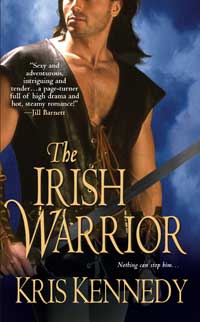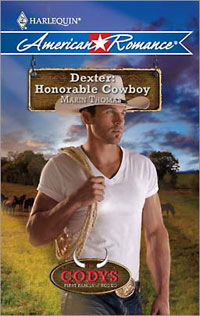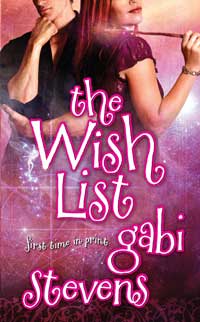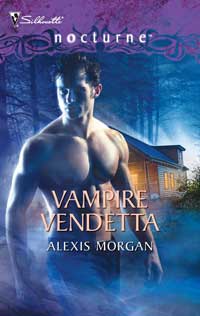By Susan Gable
In trying to come up with a topic for this blog that might appeal to a variety of folks, I stumbled onto the idea that maybe writers out there who enter contests might wonder what sometimes goes through a judge’s mind as they’re reading. (I know more than once I said, “WTF? What the HELL were you thinking?” when I got back MY contest entries and score sheets. LOL. I don’t know if I can actually answer those types of questions relating to contest judges, but maybe I can provide some insight into what I’m sometimes thinking.)
When it comes right down to it, it’s all about the characters and the stories for me. It’s really easy to judge the still-wet-behind-the-ears entries, the ones that head-hop, or tell and never show, or don’t know what a paragraph is. (No kidding, I once read an entry that was a 25 page paragraph. No paragraph breaks at all. That was painful to read.) Grammar and punctuation are our friends.
Once the craft basics are mastered, we get into the areas that are harder to define. (“It just didn’t work for me” is an excuse an editor/agent can use, but someone judging a contest has to be a lot more helpful than that.)
You do have to grab me in the first page or two. Show me an interesting set up. Show me conflict, or clue me in to the 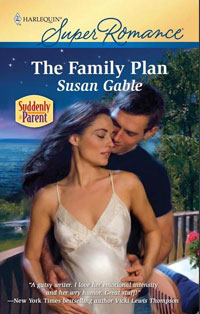 POTENTIAL for conflict. Let me know there’s a secret here. My new book, THE FAMILY PLAN, opens with my heroine showing up on the hero(whom she’s never met)’s doorstep on a secret mission of some sort. And right on the first page of the story, you find out she doesn’t think men are reliable. Conflict alert! On the next page, you see she wants to get what she came for (which turns out to be his sperm <G>) and get the hell out of dodge. Interesting character, situation that makes me ask questions – what’s she up to? What does she want? And the possibility of conflict with the hero. ‘ Cause of course you know he’s not going to want to give her what she wants.
POTENTIAL for conflict. Let me know there’s a secret here. My new book, THE FAMILY PLAN, opens with my heroine showing up on the hero(whom she’s never met)’s doorstep on a secret mission of some sort. And right on the first page of the story, you find out she doesn’t think men are reliable. Conflict alert! On the next page, you see she wants to get what she came for (which turns out to be his sperm <G>) and get the hell out of dodge. Interesting character, situation that makes me ask questions – what’s she up to? What does she want? And the possibility of conflict with the hero. ‘ Cause of course you know he’s not going to want to give her what she wants.
Another thing I run into a lot in contest entries is characters behaving badly. And by that I mean, not logically, not consistent with what we know about “real” people. If you motivate it right, I’ll follow you and your characters anywhere. But if you don’t…you’re going to lose me when you have your characters behaving stupidly. You know, in the horror movies the woman goes into the creepy, dark basement wearing just her underwear and carrying a teddy bear for protection? Don’t do that! Make her put on her clothes, grab a weapon of some sort, and MOTIVATE her actions – if she’s going down there just because she heard a noise, she’s TSTL and deserves to get chopped up by Freddy. If she’s going down there because her sister/mother/father/best friend went down there, and she’s worried about said friend…now I’m with you.
But that applies to minor things, too. Common sense applies. Don’t have someone put a candy in an unconscious person’s mouth. Don’t make your hero run on a broken leg. (Unless you SHOW me something compelling to make it believable – as in, splint it or something — and he’s got good motivation. Trying to stay alive is usually good motivation. <G>) Don’t have your characters be ignorant of something they should reasonably know about.
You need to know and understand your characters well enough to know what “normal” behavior is for them. Cops are suspicious by nature, as are the fathers of teenage girls. Hair-stylists are going to notice everyone’s hair. A character who is a chef (like the hero in my upcoming book) is going to get really annoyed with you if you order food delivered to his restaurant/home from another restaurant. Migraines don’t vanish like magic. Characters holding the leashes of dogs copulating in the bushes will know something is going on with their animals. A medical person on the verge of escaping from her kidnappers probably wouldn’t stop on her way out the door to blow up the whole house and kill all the drug dealers passed out in the place. If your heroine shot the hero, chances are he’s going to hold a grudge for a really long time.
Everything has to make sense. As I said, if you motivate it properly, I will stick with you. But if it feels like you’re having certain things happen just because it suits your story, or it’s cute, and you haven’t really thought about it… THINK about it! If you find yourself trying to explain character behavior in the paragraph, that’s often a sign they’re doing something that deep down, you know they shouldn’t be. And you’re taking the easy way out.
Judges, like editors and agents, also have their own personal “ick” factors, or things that just rub them the wrong way. We’re all human. Readers are human, too. Sometimes you get irate fan mail because you touched a nerve in a reader. When I’m judging an entry, I try really hard not to let my own personal ick factors get in the way of my judging. Not all judges do that, though. Some of them will knock you down on the score because you dared to have a heroine drop an f-bomb. (Or whatever taboo you broke.) Often I will point it out, especially if I think it’s a marketing issue. (Dear writer, you’ve entered this ms as an Inspirational book, and your heroine is dropping f-bombs all over the place. Though it does seem to suit her character, you might want to rethink it — the inspirational publishers/lines aren’t going to be happy with it.)
Remember that characters should grow and change over the course of a book. They should learn something. So they certainly don’t have to be perfect at the beginning. (Or ever!) Perfect characters are boring! Plus…nobody’s perfect.
In the end, try to remember that judging a contest, like all reading experiences, is subjective! What annoys the snot out of one person is perfectly fine with another. This gets you ready for reader reactions. Judges are only human. We invest a lot of time in judging contest entries. (Most of us do, anyway.) It’s okay to be mad, sad, etc. when you read the comments. But come back to the comments later, after the sting has worn off, and take another look. Is there anything the judge said that might make the story better? Believe me, when I got some of my contest results back, I cried. And when I got my first set of line edits, I cried. LOL. So, it’s all part of the process. Making anything, including a story, stronger, is never an easy process.
Do you have any contest questions? Stories of judging horror? (I try never to be mean when I judge, but I do tend to be somewhat blunt, and that probably puts off some people.) Any other writing questions that maybe I can answer?
What’s your favorite writing contest and why?
***
Leave a comment or question for Susan to enter to win THE FAMILY PLAN. If you’re reading this post through a feed on Facebook, Goodreads, or another social network, please visit the comment trail at www.museinterrupted.com to be eligible for the draw.
To read Susan’s bio and the story blurb for THE FAMILY PLAN, see yesterday’s post. To learn more about Susan and her books, please visit www.susangable.com.
 What happened to him? We readers, and writers, want to know. How will he overcome his past that’s still tormenting him? How will the heroine save him, or prove to him that he’s worthy of love and can love her?
What happened to him? We readers, and writers, want to know. How will he overcome his past that’s still tormenting him? How will the heroine save him, or prove to him that he’s worthy of love and can love her?

